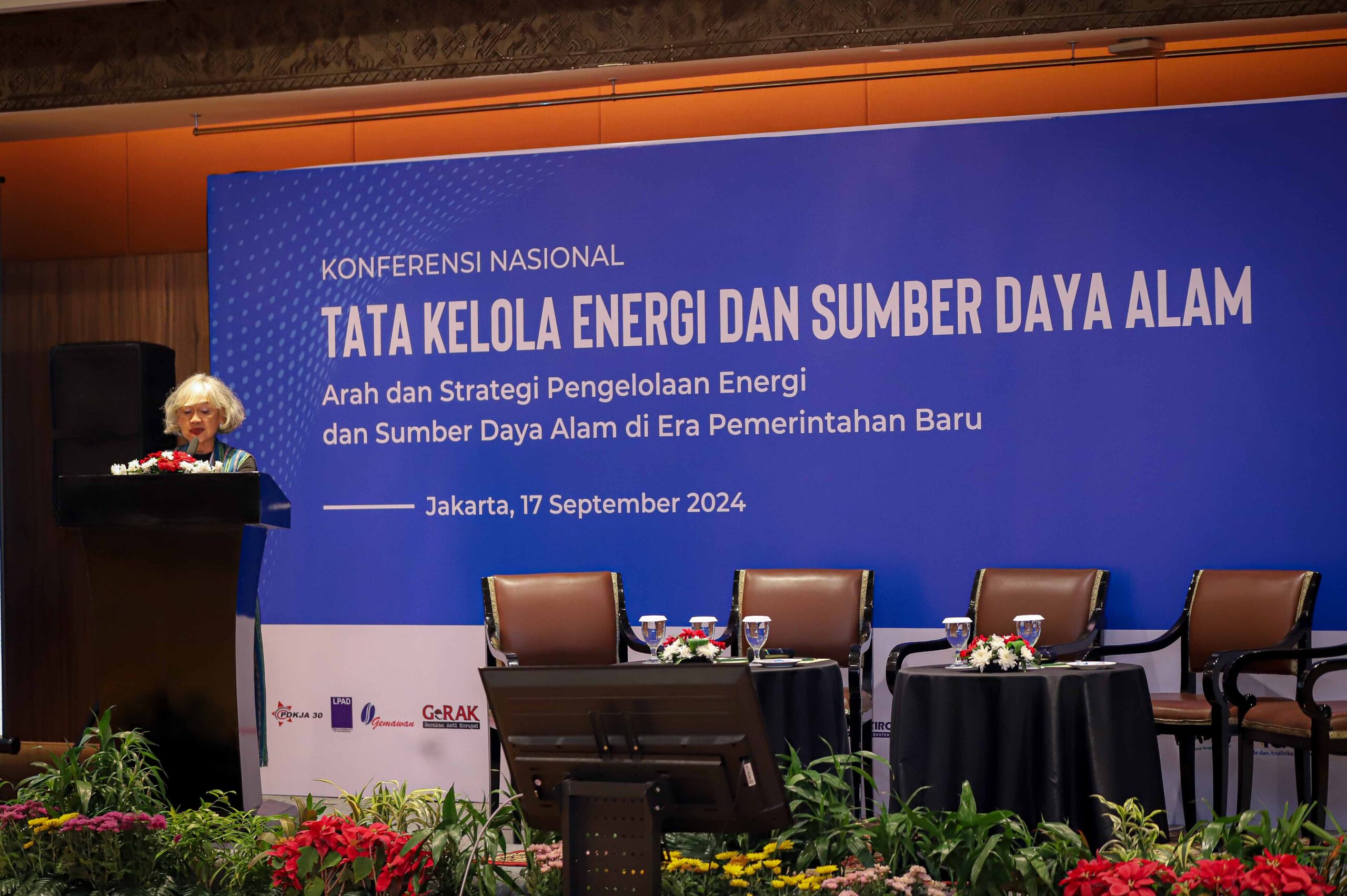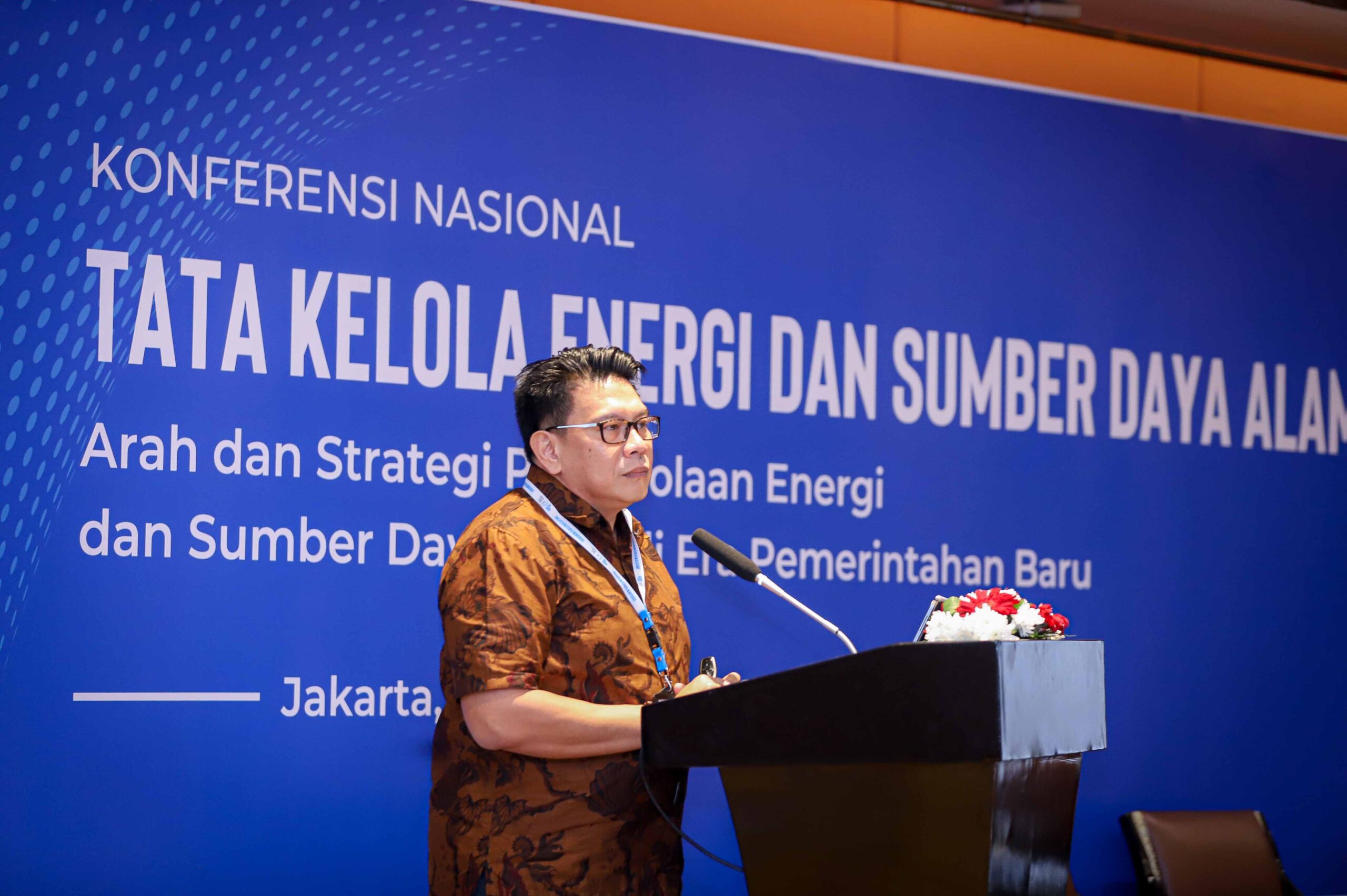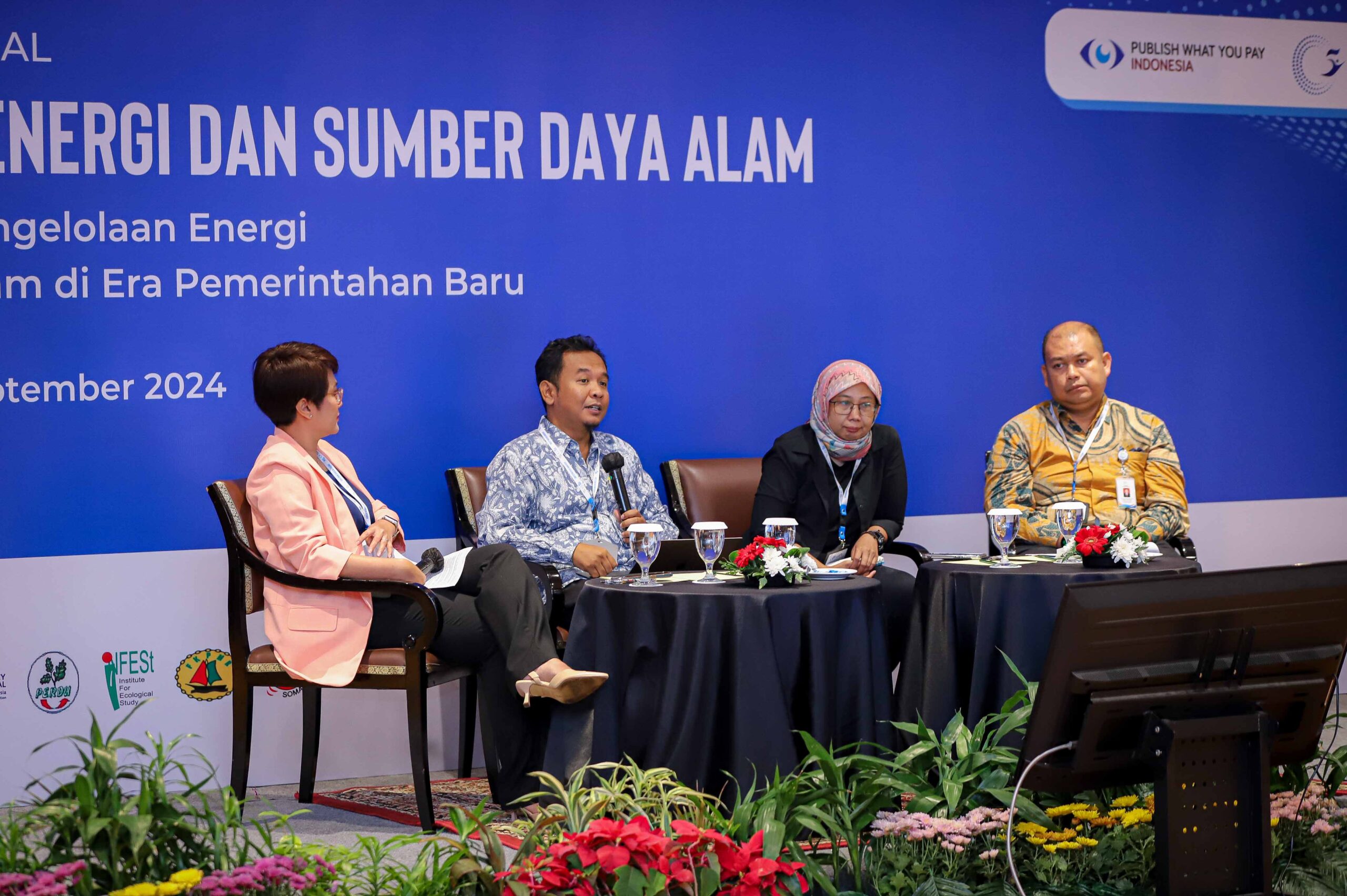Jakarta, September 17, 2024 – Indonesia has just celebrated the grand conclusion of the 2024 Election, with the election of Prabowo Subianto and Gibran Rakabuming as President and Vice President for the 2024-2029 period. The big challenge ahead is integrating the vision and mission conveyed during the campaign into the 2025-2029 National Medium-Term Development Plan (RPJMN), which the Ministry of PPN/Bappenas is preparing. This moment is crucial to determining the direction of national development, especially in the management of energy and natural resources (SDA) that is transparent, accountable, sustainable, and in line with the constitution’s mandate for the greatest prosperity of the people.
This is the main focus of the National Conference on Energy and Natural Resources Governance organized by Publish What You Pay (PWYP) Indonesia, with the theme “Direction and Strategy for Energy and Natural Resources Governance in the New Government Era.” The conference was held in Central Jakarta on Tuesday, September 17, 2024.
In her remarks, Natalia Soebagjo, Chair of the PWYP Indonesia Steering Committee, emphasized that “This conference is part of the PWYP Indonesia General Members Meeting (RUA), which functions as the highest decision-making mechanism for the PWYP Indonesia coalition. During this moment, we aim to formulate important decisions on the governance of the energy and natural resource sectors while also addressing the urgent challenges posed by climate change.”
As Indonesia moves towards “Indonesia Emas 2045,” the current generation faces three significant challenges: the climate crisis, the biodiversity crisis, and the decline in the quality of natural resources, particularly fossil fuels that have been extracted since the 19th century. Natural disasters resulting from climate change are tangible manifestations of these crises, leading to significant economic impacts.
“The climate crisis is ‘The Mother of Crisis.’ It triggers larger crises, including the food crisis, and causes inequality if not managed properly,” said Fabby Tumiwa, Executive Director of the Institute for Essential Services Reform (IESR) and the keynote speaker at the conference.
Fabby added that the challenges in addressing the climate crisis are substantial, primarily due to high dependence on fossil fuels. “To mitigate climate change, accelerating the energy transition is essential. Efforts to overcome the climate crisis must begin with reducing and ultimately ceasing the use of fossil energy. This is certainly not a simple task, especially given that commitments from countries are still below expectations,” he explained.
Nonetheless, Fabby remains optimistic that Indonesia’s future direction will align with the energy transition and gradually reduce fossil fuel consumption. “The president-elect, Prabowo, is targeting high economic growth. According to a Bappenas study, economic growth must drive the reduction of greenhouse gas emissions. The investment trend must shift toward renewable energy. Thus, the next government needs to set ambitious targets for developing renewable energy,” continued Fabby, who served as the PWYP Indonesia Steering Committee chairman from 2012 to 2020.
Moreover, the challenges during the energy transition period will increase the demand for critical minerals. This places pressure on Indonesia to produce these minerals, especially given the abundant reserves of essential minerals such as nickel and tin. However, environmental issues must be a primary concern.
Looking ahead, particularly in the new government’s era, strengthening governance in natural resources and energy is crucial for the success of the energy transition, addressing the climate crisis, and utilizing natural resources for the welfare of the people. Fabby strongly recommended, “We must avoid ‘false solutions’; instead, effective solutions to reduce greenhouse gas emissions are urgently needed. We should not fall into the trap of prolonging our dependence on fossil fuels. The extraction of natural resources must consider environmental carrying capacity while also protecting community rights. Additionally, we need to strengthen the regulatory framework, enhance transparency, and ensure that added value is maximized for Indonesia, including investment in medium and downstream industries, technology transfer, and job creation.”
The conference series featured a variety of activities, including talk shows and parallel sessions with speakers from the government, mining associations, the PWYP Indonesia coalition, and civil society organizations. Representatives from PWYP Global also participated in the conference.
The National Coordinator of PWYP Indonesia, Aryanto Nugroho, underscored the importance of strengthening governance in the energy and natural resources sector. He stated that the government needs to enhance transparency and accountability through normative publications and civil society participation. “We support rights-based governance. The prerequisites for civil society involvement are adequate democracy and civic space. Our democracy index is declining, and there are concerns about whether civic space will endure in the new government’s era,” he mentioned.
In conclusion, Aryanto reiterated that the demand for critical minerals will continue to rise during the energy transition. Therefore, rights-based governance will become increasingly important to consider human rights and the environment. “Peoples Before Profit; the interests of the people must be the main priority, and we will only discuss other interests afterward. Economic growth is important, but we must not ignore the inequalities that may arise,” he concluded.
The conference is expected to produce constructive recommendations for improving energy and natural resource management policies and to encourage public participation in overseeing more transparent and accountable governance in the new era of government.
Contact person:
Aryanto Nugroho – aryanto@pwypindonesia.org


